Are you looking to make your home more energy-efficient and lower your utility bills? Requesting a home energy audit can be a fantastic first step toward identifying areas where you can save energy and enhance your comfort. Not only can this audit pinpoint inefficiencies, but it can also uncover simple changes that lead to significant savings over time. If you're curious about how to get started with a utility home energy audit, read on for a helpful template that you can easily customize for your request!
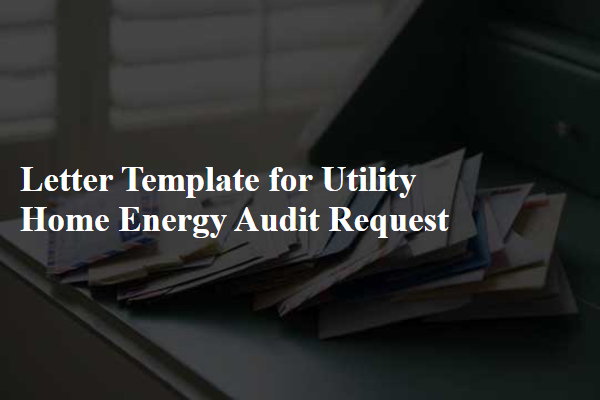
Personal Information
A utility home energy audit request requires detailed personal information to ensure proper service delivery. Standard information includes the homeowner's full name, typically formatted as "John Smith." Contact details encompass a complete mailing address, such as "123 Main Street, Springfield, IL 62701," along with a primary phone number, for instance, "(555) 123-4567," and an email address, such as "john.smith@email.com." The property details should clarify the type of residence--single-family home, townhouse, or apartment--along with the year of construction, like "built in 1995." Important data also includes the square footage of the home, for example, "approximately 1,800 square feet," and information about existing energy systems, such as "gas furnace" or "electric water heater," which influences energy consumption analysis. Furthermore, indicating participation in any existing utility programs enhances the understanding of the home's energy efficiency standing.
Property Details
A utility home energy audit can significantly enhance the energy efficiency of residential properties, leading to considerable cost savings and reduced environmental impact. Homeowners might provide specific property details such as square footage (which can range from 1,000 to over 3,500 square feet), insulation types (including fiberglass or cellulose), and existing heating, ventilation, and air conditioning systems (HVAC) like central air or ductless mini-split systems. Additionally, the age of the home (often varying between 10 to over 100 years) plays a crucial role, influencing construction materials and energy consumption patterns. Local utility companies frequently offer free or subsidized audits, aiming to identify potential upgrades such as LED lighting, smart thermostats, or energy-efficient appliances. Collecting a complete list of these property characteristics can facilitate a more tailored energy assessment.
Purpose of Request
A utility home energy audit serves as a comprehensive assessment of a residential property's energy use and efficiency. Homeowners in various regions, such as California or New York, benefit from this service, identifying opportunities to enhance energy conservation and reduce utility costs. During the audit, trained energy auditors utilize specialized equipment, such as blower doors and infrared cameras, to detect air leaks and insulation deficiencies within the home. The evaluation typically lasts between two to four hours, depending on the size of the residence. The final report provides detailed recommendations for improvements, with potential improvements including upgrading to energy-efficient appliances, enhancing insulation, and installing programmable thermostats. This initiative aligns with broader sustainability goals, aiming to reduce overall energy consumption and greenhouse gas emissions in local communities.
Preferred Scheduling
A utility home energy audit provides homeowners with valuable insights into energy consumption and potential savings. Scheduling the audit can vary by provider, typically requiring at least two weeks' notice. An energy auditor, often certified by organizations like the Building Performance Institute, examines key areas such as insulation, HVAC systems, and lighting fixtures. Various state programs, like California's Energy Upgrade Program, may offer financial incentives for participation. Homeowners should prepare to provide information about their energy bills, square footage of the residence, and any previous energy efficiency improvements made. Residential audits usually take between two to four hours, depending on the home's size and complexity, leading to a detailed report outlining recommendations and potential upgrades.
Contact Information
Home energy audits play a crucial role in enhancing energy efficiency for households. These audits, conducted by certified professionals, assess a home's energy performance, identifying areas for improvement such as insulation levels, heating and cooling efficiency, and potential energy loss points like gaps around windows or doors. By analyzing data from energy consumption (measured in kilowatt-hours), energy auditors provide homeowners with personalized recommendations to reduce utility bills, optimize heating and cooling systems, and promote sustainable practices. Residents may request audits through local utility providers, ensuring a thorough examination of energy usage patterns and personalized insights to inform energy-saving strategies.
Letter Template For Utility Home Energy Audit Request Samples
Letter template of utility home energy audit request for residential efficiency improvement
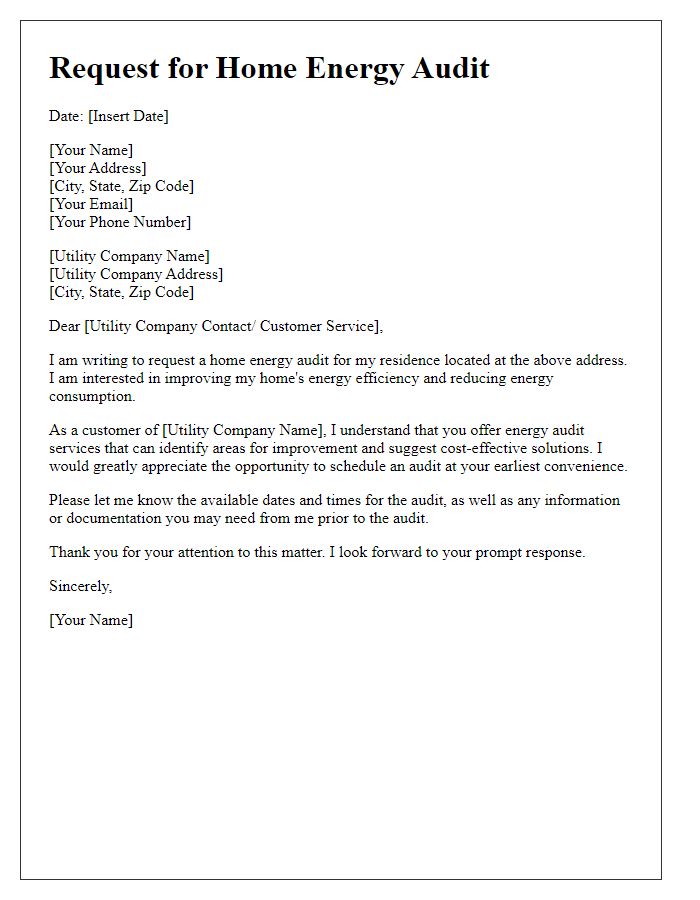
Letter template of utility home energy audit request for energy-saving tips
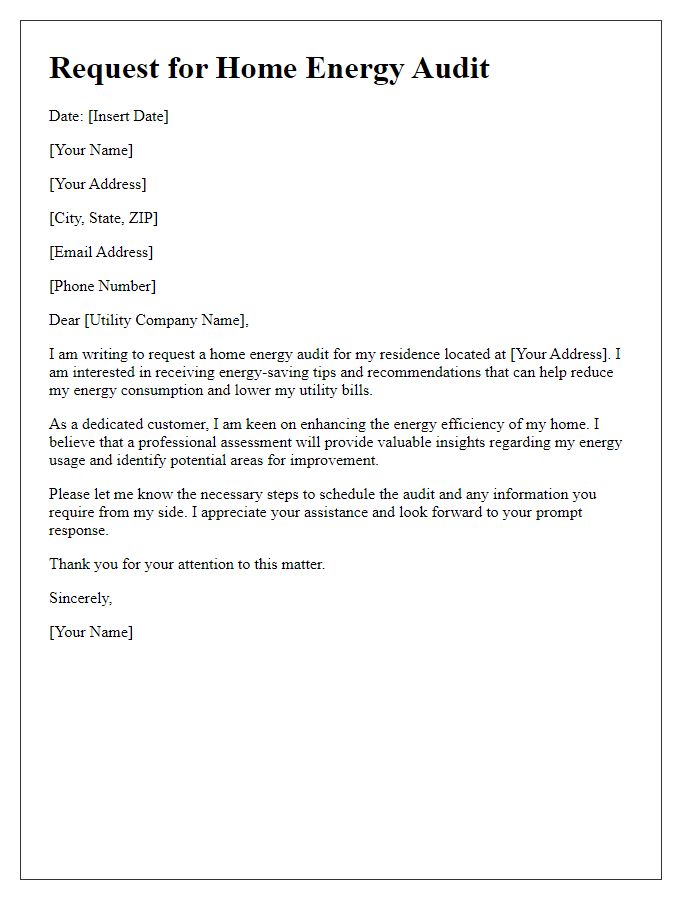
Letter template of utility home energy audit request for lower utility bills
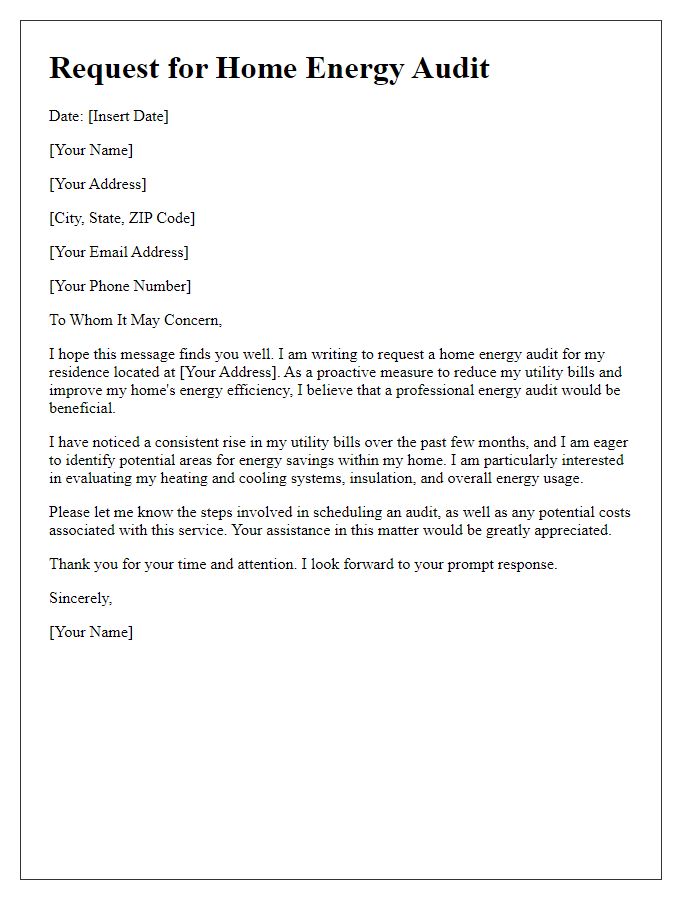
Letter template of utility home energy audit request for renewable energy consultation
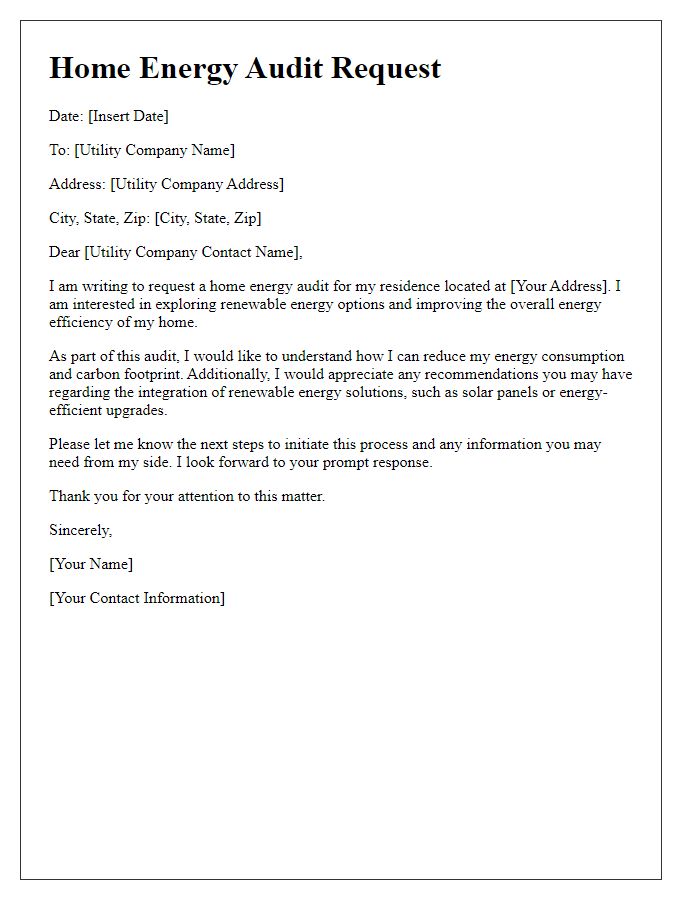
Letter template of utility home energy audit request for insulation assessment
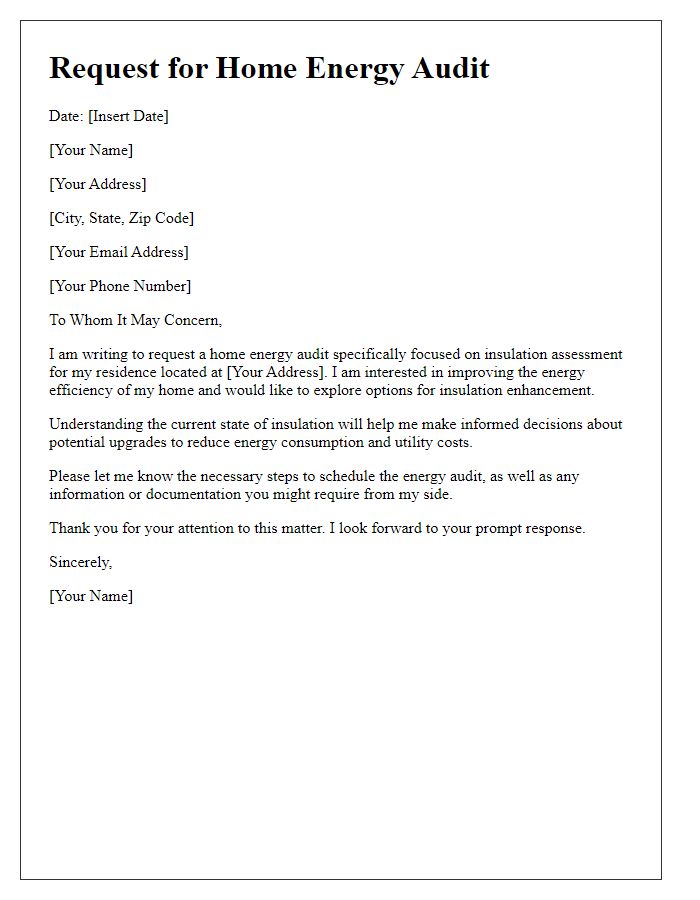
Letter template of utility home energy audit request for HVAC system evaluation
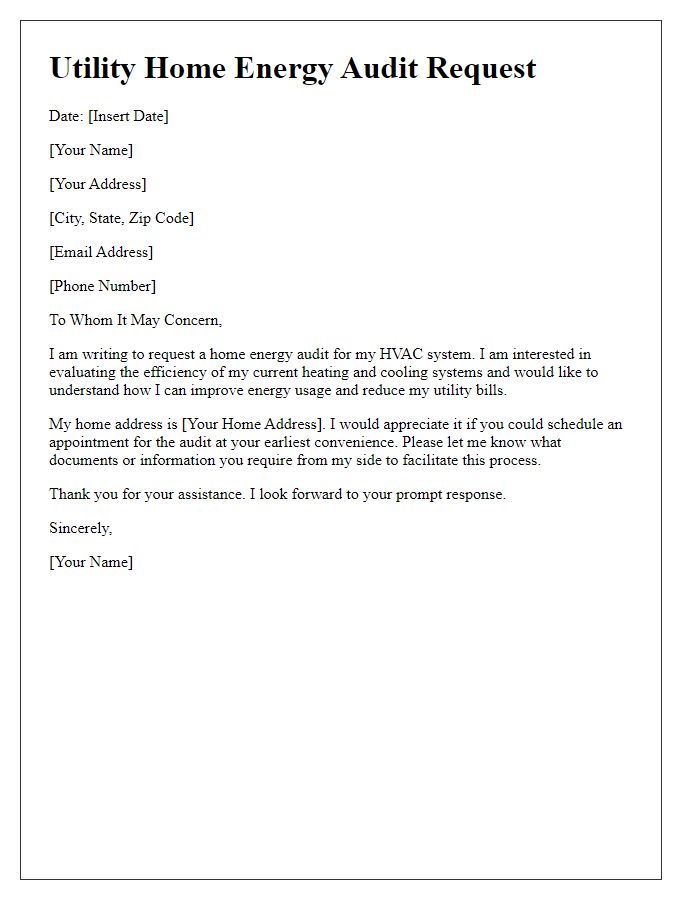
Letter template of utility home energy audit request for lighting enhancement advice
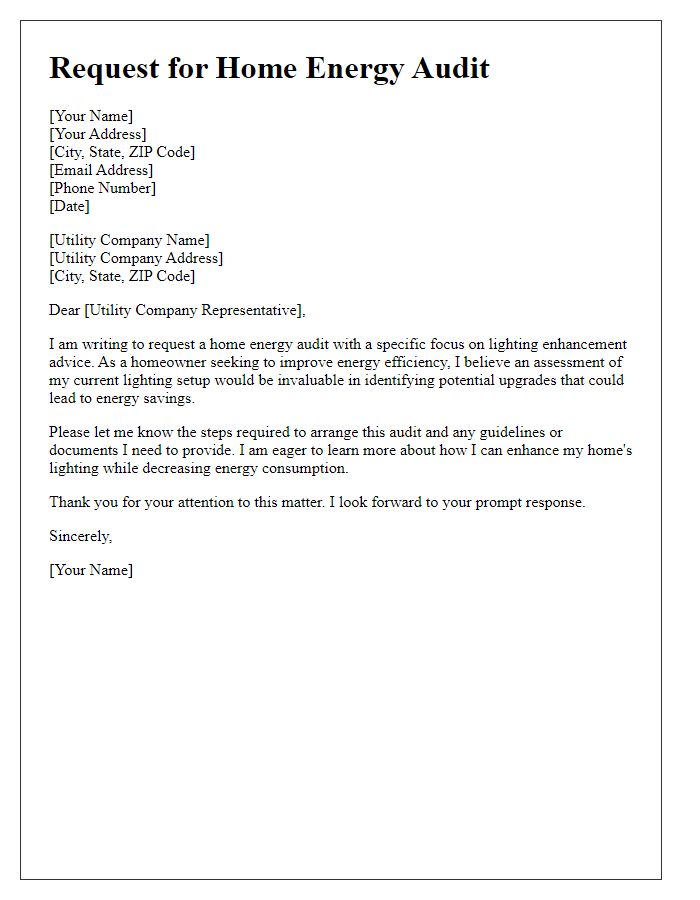
Letter template of utility home energy audit request for program eligibility inquiry
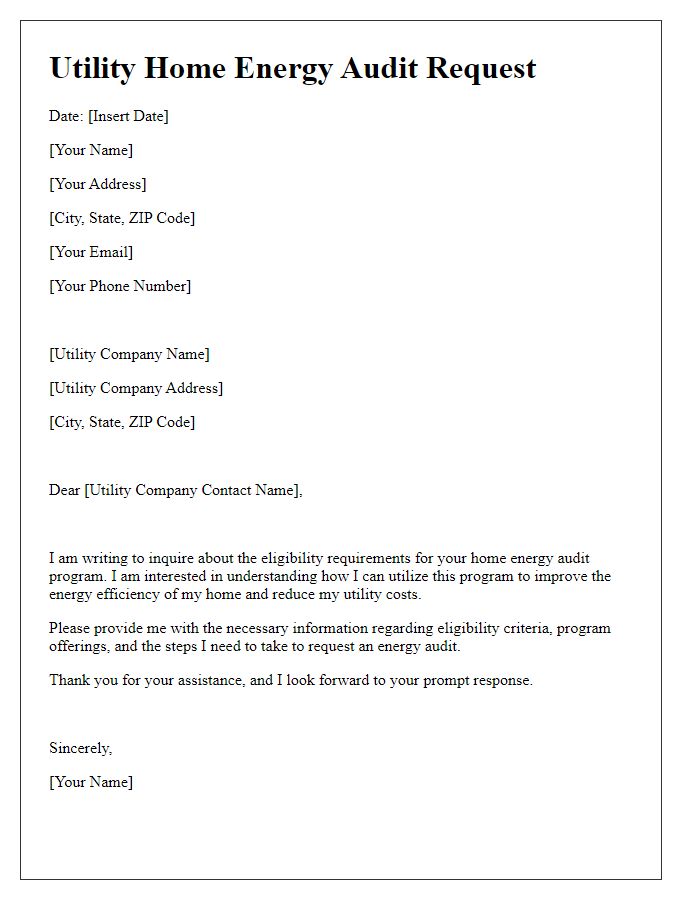
Letter template of utility home energy audit request for sustainability measures
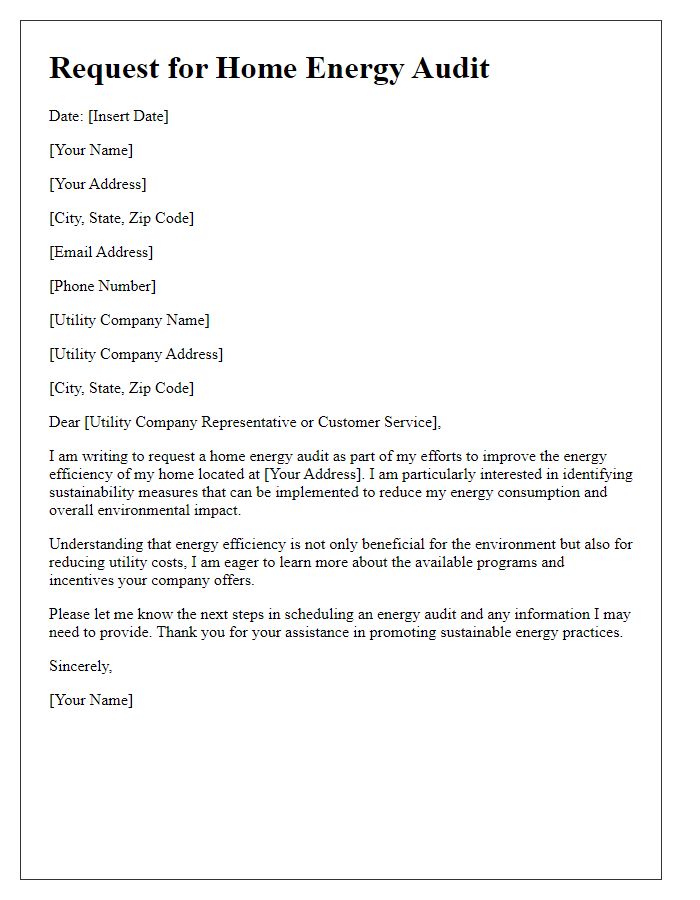

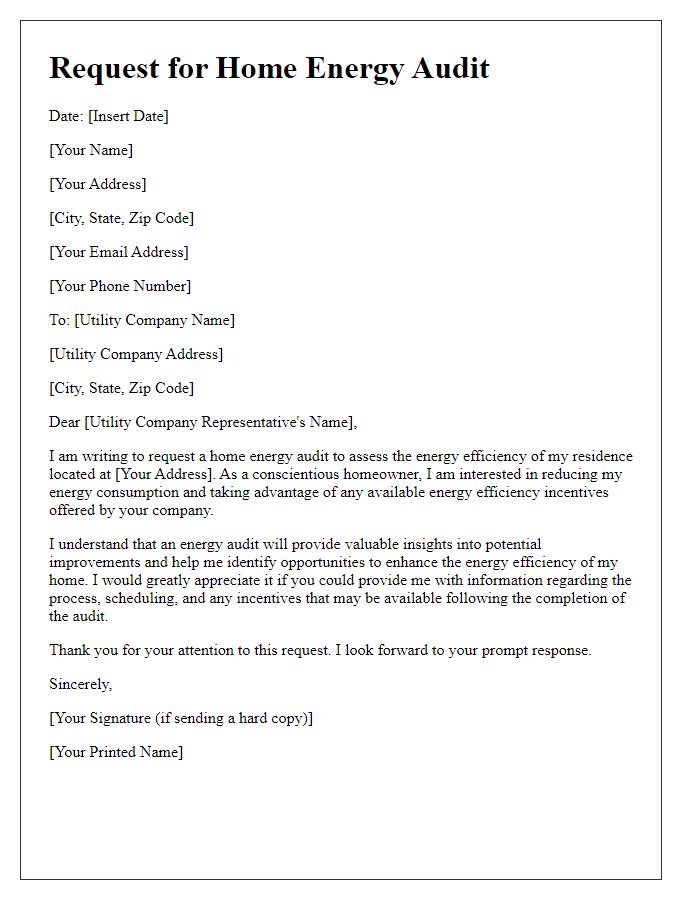

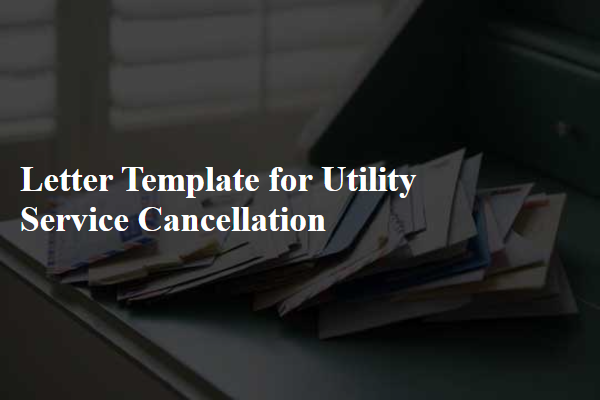
Comments